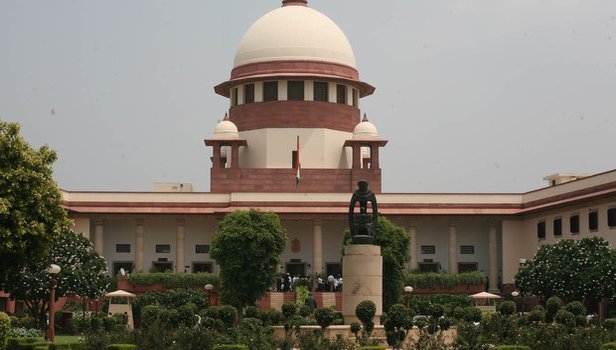Supreme Court refuses to ban CCA at present
22 Jan 2020 ( IBTN News Bureau )
The Supreme Court in India held that the Citizenship Amendment Act (CAA) cannot be stayed without hearing.
Amid protests across the country, the Supreme Court on Wednesday heard more than 144 petitions filed in support of and against the Citizenship Amendment Act (CAA).
The Supreme Court said that no interim relief can be granted on this matter only after four weeks. No CAA-related case can be heard in any High Court.
The Supreme Court has asked the Center to file its reply in four weeks. Supreme Court refused to ban the CAA without hearing the Center.
When the hearing on the matter started, Attorney General KK Venugopal complained to the crowd in the court.
He told Chief Justice SA Bobde of the Supreme Court that the atmosphere should remain calm, especially in the Supreme Court. He said that the court should order that some rules should be made regarding who can come for hearing. Sibal also expressed a similar concern.
Chief Justice said that he is doing something about the huge crowd in the court. The Attorney General said that there are some rules regarding visitors to the Supreme Court in the US and Supreme Court in Pakistan in the court room.
Sibal said that the court has to decide whether the matter has to be referred to the constitutional bench. Citizenship cannot be revoked once granted.
Singhvi said that the court should consider setting up a constitutional bench and states started implementing this law.
AG Venugopal said that there is provision for withdrawal of citizenship granted in CAA.
These petitions have been filed by Congress leaders Jairam Ramesh, Trinamool Congress' Mahua Moitra, Asaduddin Owaisi, among others.
On 9 January, the court expressed displeasure over the violent incidents taking place during the protests against the citizenship law, saying that all petitions related to the case would be heard only when the violent incidents ceased.
The three-member bench headed by Chief Justice SA Bobde and Justice S Abdul Nazeer and Justice Sanjiv Khanna on these petitions issued notice to the Central Government seeking hearing on January 9.
Petitions were filed in the Supreme Court against this amendment law on 18 December following violence in Delhi-based Jamia Millia Islamia last year. The Supreme Court then refused to hear these petitions immediately and set a date for January 22.
The court also refused to ban this law. However, he decided to review it.
Those opposing this law say that Muslims are excluded from its purview, which is a violation of the Indian Constitution.
Most of the petitioners say that this law speaks of granting citizenship to the persecuted people of Hindu, Buddhist, Christian, Parsi, Sikh and Jain communities from neighboring countries of India, but it does not intentionally include Muslims. The constitution does not allow such discrimination.
The petitioners have urged the repeal of this law against the basic spirit of the constitution and as divisive.
While the validity of the Citizenship Amendment Act has been challenged in most of the petitions, some petitions have sought to declare this law constitutional.
The Citizenship Amendment Act provides for granting citizenship of India to Hindus, Sikhs, Buddhists, Christians, Jains and Parsis who came from Pakistan, Afghanistan and Bangladesh as of 31 December 2014.
Opposition as well as many organizations are opposing this issue. Also it is being declared as anti-constitution.
Before this hearing, some women outside the Supreme Court also opposed the Citizenship Amendment Act.
On Tuesday, some women arrived outside the Supreme Court carrying posters, banners. However, after some time they were removed from there.
In the Shaheen Bagh of Delhi, women have been protesting against this law for the past 38 days. At the same time, according to the news agency PTI, many universities in the Northeast are closed in protest against this law.
On 12 December 2019, the Citizenship Amendment Bill was approved by President Ramnath Kovind as a law.
(Click here for Android APP of IBTN. You can follow us on facebook and Twitter)
Share This News
About sharing
-
 05 Aug 2025
At least four dead, dozens missing as flash floods hit north India village
05 Aug 2025
At least four dead, dozens missing as flash floods hit north India village
At least four dead, dozens missing as flash floods hit north India village
-
 12 Jun 2025
Air India flight crashes in Ahmedabad with more than 240 people on board
12 Jun 2025
Air India flight crashes in Ahmedabad with more than 240 people on board
Air India flight crashes in Ahmedabad with more than 240 people on board
-
 15 May 2025
Indian-Administered Kashmir devastated after deadly cross-border strikes, residents call for help
15 May 2025
Indian-Administered Kashmir devastated after deadly cross-border strikes, residents call for help
Indian-Administered Kashmir devastated after deadly cross-border strikes, residents...
-
 11 May 2025
Thousands of Kashmiris remain displaced despite India-Pakistan ceasefire
11 May 2025
Thousands of Kashmiris remain displaced despite India-Pakistan ceasefire
Thousands of Kashmiris remain displaced despite India-Pakistan ceasefire
-
 11 May 2025
Calm returns to cities in Indian-administered Kashmir as ceasefire holds
11 May 2025
Calm returns to cities in Indian-administered Kashmir as ceasefire holds
Calm returns to cities in Indian-administered Kashmir as ceasefire holds



